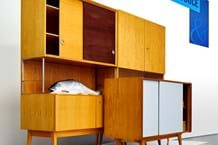Typically the ‘buyer’ enquires about a high-value item or items via a website, negotiates a price and agrees to pay by cheque. At the last minute, they make an excuse for sending a cashier’s cheque in payment that is more – often several times more – than the required amount, asking the recipient to bank the money with the promise of more purchases in the near future or a request to wire the balance to a ‘shipper’.
Many of the perpetrator’s cheques initially clear, inspiring confidence over the transactions. Typically, however, the dealer learns days or even weeks later from their bank that the cheque is either counterfeit or stolen and that they must return the full amount to the bank.
Many of con artists are thought to hail from Nigeria – and many dealers are now extremely sceptical of requests by email from Africa concerning financial transactions – but there have also been approaches from Holland and the UK.
For example, at least two dealers, one from Ireland and one from Tunbridge Wells, received orders last month from a Bristol-based man for antique clocks, but were bemused to receive sterling cheques for several thousand pounds more than the agreed invoice price.
The cheques, drawn on a Barclays account in the name of Dave Smith of Able Minds Ltd, were later discovered to be from a stolen chequebook.
In neither case, following information from the bank, were the items sent to the Bristol address given by the ‘purchaser’. More problematic is the use of highly convincing counterfeit cashier’s cheques, as recently offered to a dealer from Knutsford by a ‘buyer’ emailing from Holland about a canterbury.
This money scheme is extremely dangerous, firstly because dealers consider cashier’s cheques to be the same as cash and would have little reason to doubt the cheque’s authenticity, and secondly because the dud cheques are difficult to spot, even by banks who are clearing and cashing the cheques.
It is not until seven to 21 days later – when the seller has dispatched merchandise and/or agreed to forward the additional cash – that the deposited cashier’s cheque is returned as counterfeit and charged back to the seller’s account.
Overpayment fraud is latest online scam
The antiques trade are being alerted to a new online fraud after at least three dealers were targeted last week. Overpayment fraud, as it is known, is the latest in a series of Internet-based payment frauds aimed at retailers with a website presence.




